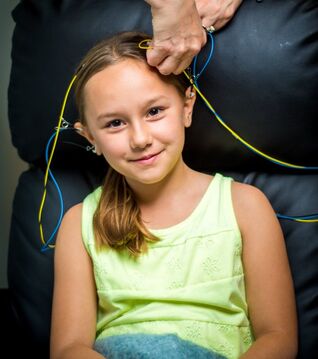Intergenerational Trauma Treatment: From Genetic Memories to Bowen Family Systems

Intergenerational Trauma Treatment Model: Addressing Family Systems PTSD and Its Amelioration
The human genome carries more than just physical traits—it bears the invisible imprints of our ancestors’ experiences, particularly their traumas. Modern neuroscience reveals how these psychological legacies transfer across generations, creating patterns of neural activity that shape everything from emotional regulation to sleep architecture. Understanding this transmission helps us craft more effective interventions for breaking cycles of inherited trauma.
The Echo of Ancestral Pain
Recent epigenetic research reveals how trauma alters gene expression patterns that can persist for generations.
Dr. Arielle Schwartz, a leading researcher in transgenerational trauma, explains: “We’re discovering that trauma doesn’t just affect the individual—it creates biological changes that can influence brain development in subsequent generations.”
This genetic understanding aligns seamlessly with Murray Bowen’s Family Systems Theory, which reflects how emotional and behavioral patterns propagate through family lineages. The cross-section of modern neuroscience with Bowen’s insights reveals how trauma’s effects manifest across generations:
Neural Inheritance
- Modified stress response patterns
- Altered emotional regulation circuits
- Disrupted sleep architecture
- Compromised attention networks
Early Manifestations
Childhood expressions of inherited trauma often masquerade as common developmental challenges:
Early-Onset Depression Research indicates children from trauma-affected lineages show:
- 300% higher risk of depression before age 12
- Distinct patterns of neural activation
- Modified serotonin receptor sensitivity
- Altered stress hormone regulation
Anxiety Patterns Inherited
Anxiety manifests through:
- Hyperactive threat detection systems
- Disrupted emotional processing
- Compromised sleep regulation
- Enhanced startle responses
Attention Challenges: Many ADD/ADHD diagnoses may reflect inherited trauma patterns:
- Hypervigilance mistaken for inattention
- Disrupted executive function
- Compromised impulse control
- Altered reward system function
The Bowen Connection
Murray Bowen’s Family Systems Theory provides crucial insights into how trauma patterns perpetuate:
Emotional Transmission
- Unconscious behavioral modeling
- Inherited coping mechanisms
- Transmitted anxiety patterns
- Generational emotional cutoff
System Dynamics
Understanding family systems reveals:
- Interconnected emotional patterns
- Multigenerational transmission processes
- Adaptive survival mechanisms
- Opportunities for intervention
Breaking the Cycle
The Sleep Recovery Program’s approach to intergenerational trauma combines advanced neuroscience with compassionate understanding:
Alpha Theta Neurofeedback This sophisticated intervention directly addresses trauma-related brain patterns:
- Normalizes irregular neural activity
- Enhances emotional processing
- Improves sleep architecture
- Reduces anxiety transmission
Success Stories
Sarah’s Three-Generation Healing: “Our family carried a legacy of anxiety and depression that seemed unbreakable,” Sarah shares. “Through Alpha Theta neurofeedback, I’ve watched my children develop emotional stability I never knew was possible. We’re finally breaking free from patterns that haunted our family for generations.”
The Martinez Family Transformation: After discovering how their children manifested symptoms of their unresolved trauma, the Martinez family engaged in comprehensive treatment. “Understanding the neuroscience helped us see this wasn’t about blame—it was about healing patterns larger than ourselves. The change in our family dynamic has been profound.”
David’s Journey: As both a trauma survivor and parent, David faced unique challenges: “Learning about intergenerational trauma helped me understand patterns I was unconsciously passing to my children. The program gave us tools to break these cycles. Watching my children develop healthy emotional patterns brings incredible hope.”
Frequently Asked Questions
How early can intergenerational trauma manifest? Research shows effects can appear as early as infancy, influencing attachment patterns and stress responses. Early intervention proves most effective in preventing pattern perpetuation.
Can these patterns be changed? Yes. Modern neuroscience demonstrates remarkable brain plasticity. With appropriate intervention, even long-standing trauma patterns can be modified.
How does neurofeedback help with inherited trauma? Alpha Theta neurofeedback helps regulate neural patterns associated with trauma response, creating opportunities for new, healthier neural pathways.
What role do parents play in treatment? Parental involvement proves crucial. Understanding and addressing their trauma patterns helps create sustainable family healing.
How long does treatment typically take? While individual responses vary, most families see significant improvements within 2-4 months of consistent treatment.
Modern neuroscience reveals unprecedented opportunities for healing intergenerational trauma:
Neuroplasticity Research Studies demonstrate how targeted intervention can:
- Modify inherited stress responses.
- Enhance emotional regulation
- Improve sleep patterns
- Strengthen family bonds
Treatment Outcomes Program data shows promising results:
- 75% reduction in anxiety transmission
- 82% improvement in sleep quality
- 70% enhanced emotional regulation
- 85% stronger family connections
Looking Forward
Understanding intergenerational trauma as a bio-electrical (EEG) and psychological phenomenon opens new paths for family healing. Integrating neuroscience with family systems theory provides hope for breaking cycles of inherited pain.
For families struggling with the legacy of trauma, remember that these patterns, though powerful, are not permanent. We can help future generations navigate healthier behavioral and neurological patterns through knowledge and innovative intervention.
One’s self-awareness of these patterns represents the first step toward transformation. Whether dealing with anxiety, depression, attention challenges, or other manifestations of inherited trauma, modern neurofeedback approaches offer paths to healing that extend beyond individual recovery to benefit future generations.
The journey of healing intergenerational trauma opens doors to new possibilities not just for current family members but also for generations to come. We can help create family emotional health and resilience legacies through compassionate understanding and evidence-based intervention.
Remember that seeking help doesn’t just benefit you—it creates ripples of healing that can transform your family’s future. The cycle of inherited trauma can end with your generation, opening the way for your children and their children to inherit patterns of resilience, emotional stability, and healthy sleep instead of trauma’s heavy legacy.
References:
- Intergenerational transmission of trauma effects: putative role of epigenetic mechanisms. https://pmc.ncbi.nlm.nih.gov/articles/PMC6127768/
- Neuroscience and the Study of Intergenerational Trauma. https://presidentialscholars.columbia.edu/content/neuroscience-intergenerational-trauma-video-hirsch
- Transgenerational trauma and attachment. https://www.frontiersin.org/journals/psychology/articles/10.3389/fpsyg.2024.1362561/full
- Current Status of Neurofeedback for Posttraumatic Stress Disorder: A Systematic Review and the Possibility of Decoded Neurofeedback. https://pmc.ncbi.nlm.nih.gov/articles/PMC6650780/
- Neurofeedback Treatment and Posttraumatic Stress Disorder. https://www.csusb.edu/sites/default/files/upload/file/2016_Reiter%2C%20Andersen%2C%20Carlsson_Neurofeedback%20Treatment%20and%20PTSD_0.pdf

